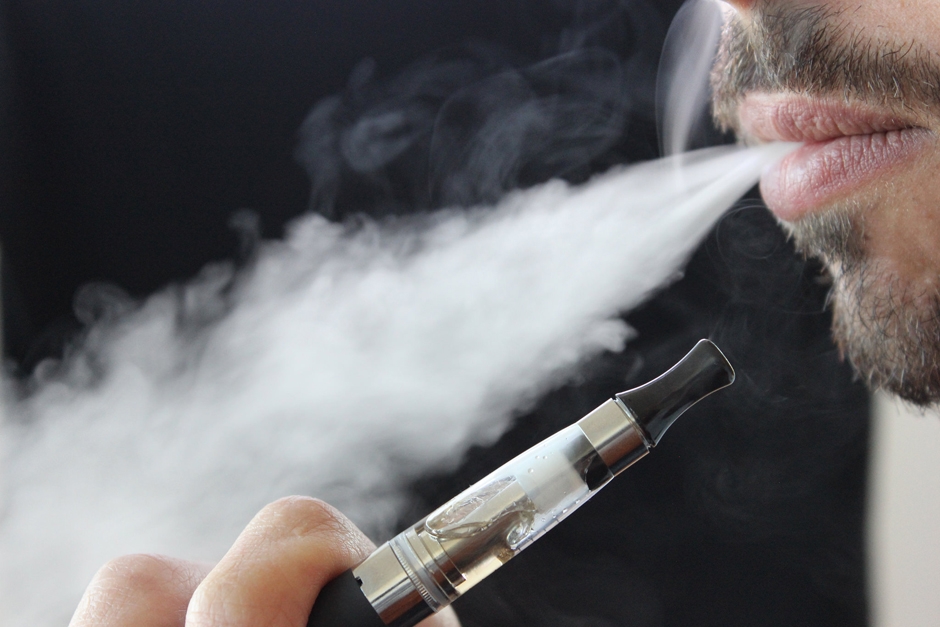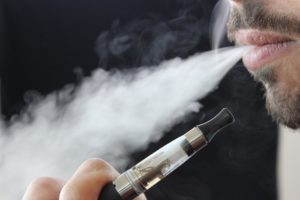
Allegheny County Council voted March 7 to ban e-cigarettes and personal vaporizer devices in indoor public places where smoking has already been forbidden.

Allegheny County Council voted March 7 to ban e-cigarettes and personal vaporizer devices in indoor public places where smoking has already been forbidden.
Raymond Arke | Asst. News Editor
Allegheny County Council voted 8-5 on March 7 to ban the use of electronic cigarettes and vaporizers in indoor public places where smoking is forbidden.
However, Duquesne’s campus had already acted ahead of the county. E-cigarettes have long been banned from indoor use on campus. Dan Cangilla, Assistant Director of Duquesne’s Office of Residence Life, said that it has always been Duquesne’s policy.
“In accordance with University policy, we do not allow any type of smoking in the Living Learning Centers, including e-cigarettes and vaporizers,” he said. “The ruling in Allegheny County has not changed this policy.”
The Student Handbook states that “the term ‘smoking’ shall include the use of all tobacco based products as well as electronic smoking devices.”
Rich Fitzgerald, Allegheny County Executive, celebrated council’s decision in a press release.
“I am proud that Allegheny County continues to focus on protecting our public health and ensuring that our community is one where quality of life is important,” he said.
The ban originated within the Allegheny County Board of Health. Dr. Karen Hacker, the director of the Allegheny County Health Department, said that the ban was necessary because of the numerous risks e-cigarettes and vapes pose.
“It’s true e-cigs are less harmful than cigarettes, however they are not harmless,” she said.
Hacker said the chemicals in the flavors and smoke of e-cigarettes are often unknown to the users and are loosely regulated.
“There’s no consistency. You don’t know what you’re getting. Scientific evidence shows toxic chemicals coming out,” Hacker said.
According to the Health Department’s E-cig and Vaping Health Risks fact sheet, chemicals contained in different e-liquids include toxics and carcinogens like toluene and heavy metals like lead and nickel which all can cause bodily damage.
Hacker said the indoor vaping ban will keep people safe from secondhand vapor, much like secondhand smoke.
Hacker said vaping can act as a “precursor” to getting addicted to regular cigarettes.
“The tobacco industry is heavily investing in e-cigs,” which Hacker said is a way to catch people young and lure them to regular cigarette use.
Hacker acknowledges that e-cigs and vapes may be useful for those who are trying to quit cigarettes, but warns that the FDA does not approve of these as quitting methods.
Hacker discouraged people who are thinking of starting vaping.
“If you’re not a smoker at all, why are you putting this stuff in your lungs?” she asked. “If you’re not smoking, don’t start. If you’re not vaping, don’t start.”
Gabrielle Williams is the owner of Vape Inn Carson, a vape shop located on the South Side. She feels that the county overreached with their ban.
“As vape owners, we thought it should be up to business owners [whether or not to allowing vaping] … What are they going to regulate next?” Williams said.
She said that concerns over the side effects of vaping are overblown.
“There’s nothing to be exposed to but vapor. There’s no chemicals, no carcinogens — nothing to be concerned of,” Williams said.
People that are skeptical should just stop by, Williams said.
“They should go into any local vape and talk to the people behind the counter. We can give them so much knowledge,” she said.


